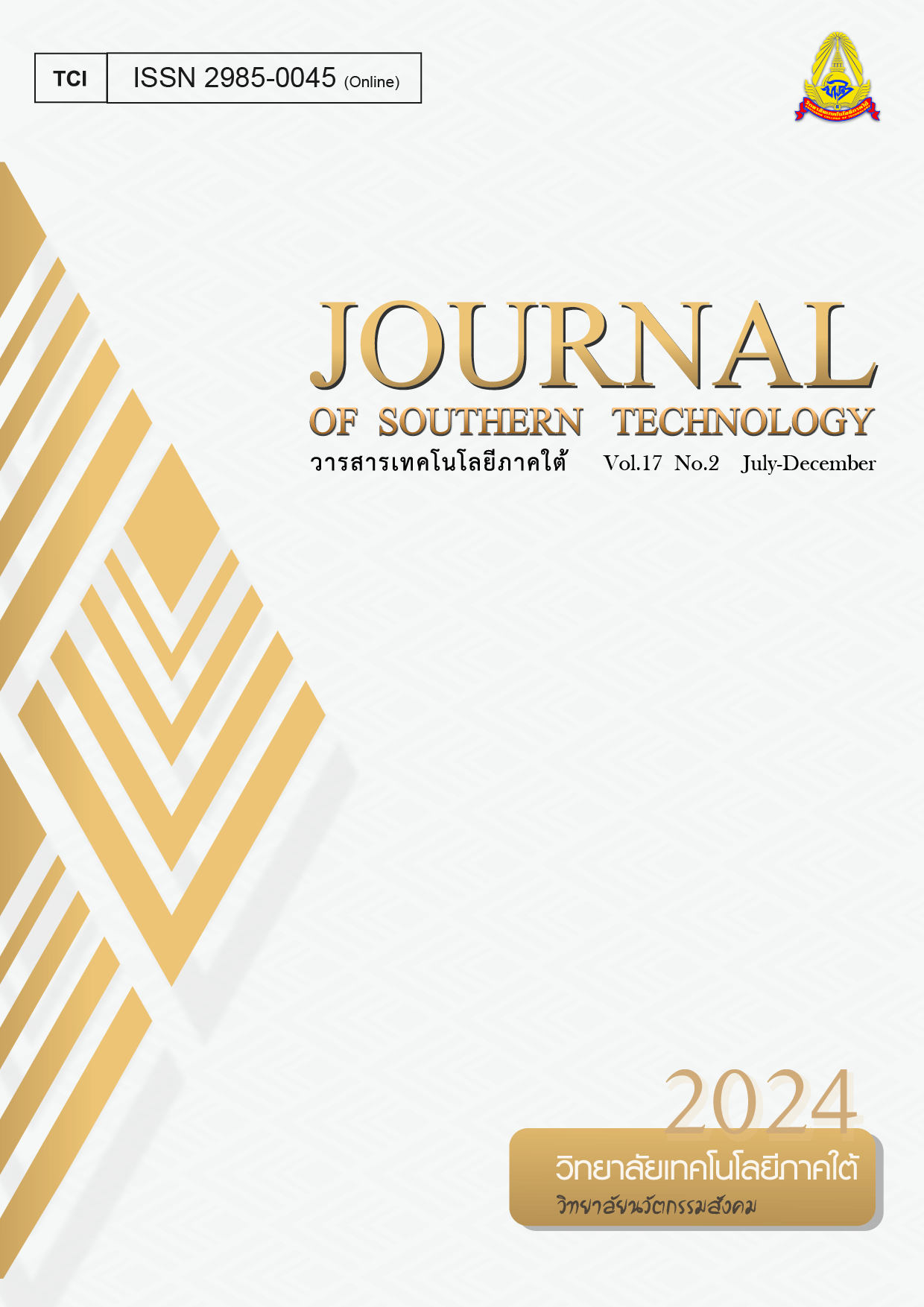การจัดการเรียนรู้แบบ Active Learning เพื่อพัฒนาผู้เรียน สู่การเป็น “นวัตกร”
Main Article Content
บทคัดย่อ
การจัดการเรียนรู้เชิงรุกเป็นพฤติกรรมที่ผู้เรียนใช้กระบวนการเรียนรู้ในการร่วมคิด ร่วมทำ ร่วมปฏิบัติ ผ่านการทำกิจกรรม ผู้เรียนเกิดการเรียนรู้ เกิดแรงบันดาลใจ เกิดทักษะในการเรียนรู้ด้วยตนเอง ค้นพบศักยภาพของตนเอง สามารถสร้างองค์ความรู้ใหม่ ความเชี่ยวชาญตามความถนัดของตนเอง ทั้งหมดนี้ เป็นผลลัพธ์จากการจัดการเรียนรู้เชิงรุก โดยให้อิสระผู้เรียนในการดำเนินโครงงานจริง ตามความสงสัยหรือความหลงใหลของตนเอง สนับสนุนการเรียนรู้ที่เน้นการลงมือปฏิบัติ อันก่อให้เกิดทักษะศตวรรษที่ 21 และสามารถต่อยอดจินตนาการไปสู่ความคิดสร้างสรรค์ เพื่อเสริมสร้างความเป็นนวัตกรแก่ผู้เรียน บทความนี้มีวัตถุประสงค์ เพื่อนำเสนอแนวทางการจัดการเรียนรู้เชิงรุก เพื่อพัฒนาผู้เรียนสู่การเป็น “นวัตกร” ซึ่งได้อธิบายถึงสภาพสังคมในปัจจุบัน ลักษณะของผู้เรียนที่ควรเป็นในโลกยุคศตวรรษที่ 21 เหตุผลในการพัฒนาผู้เรียนให้เป็นนวัตกร ลักษณะของนวัตกร รวมถึงอธิบายเกี่ยวกับแนวทางการจัดการเรียนรู้เชิงรุก เพื่อพัฒนาผู้เรียนสู่การเป็น “นวัตกร”
Article Details

อนุญาตภายใต้เงื่อนไข Creative Commons Attribution-NonCommercial-NoDerivatives 4.0 International License.
- ผู้เขียนต้องยินยอมปฏิบัติตามเงื่อนไขที่กองบรรณาธิการวารสารกำหนด และผู้เขียนต้องยินยอมให้บรรณาธิการ แก้ไขความสมบูรณ์ของบทความได้ในขั้นตอนสุดท้ายก่อนเผยแพร่
- ลิขสิทธิ์บทความเป็นของผู้เขียน แต่วารสารเทคโนโลยีภาคใต้คงไว้ซึ่งสิทธิ์ในการตีพิมพ์ครั้งแรก โดยเหตุที่บทความนี้ปรากฏในวารสารที่เข้าถึงได้จึงอนุญาตให้นำบทความไปใช้เพื่อประโยชน์ทางการศึกษา แต่มิใช่เพื่อการพาณิชย์
เอกสารอ้างอิง
Bonwell, C.C., & Eison, J. A. (1991). Active Learning: Creative Excitement in the Classroom. ASHE-ERIC Higher Education Reports No.1.
Washington, D.C.
Charoenwongsak, K. (2015). Great Initiative, Long-term Future. Retrieved November 1, 2022, from http://www.kriengsak.com/Wallyfuture-Initiatives. [in Thai]
Drucker, P. (1985). Innovation and Entrepreneurship. New York: Harper Row Publishing.
Gifkins, J. (2015). What Is ‘Active Learning’ and Why Is It Important? E-international Relations. Retrieved from http://www.eir.info/2015/10/08/what-is-activelearning-and-why-is-it-important.
Grabinger, R.S. (1996). Rich Environments for Active Learning. In David Jonas Sen. Handbook of Research for Educational Communications and Technology. Washington, D.C. AECT.
Hassi, L., & Rekone, S. (2019). How Individual Characteristics Promote Experimentation in Innovation. Retrieved November 1, 2022, from https://www.worldscientific.com/doi/epdf/10.1142/S136391961850038X.
Khaemmanee, T. (2020). Proactive Competency-based Proactive Learning Management. Bangkok: Office of the Education Council. [in Thai]
Laoriandee, W., Kitrungruang, P., & Sirisamphan, O. (2017). Strategies for Proactive Learning Management to Develop Thinking and Enhance the Quality of Education in the 21st Century (12th Printing). Nakhon Pathom: Petchkasem Printing. [in Thai]
Meyers, C., & Jones, T. B. (1993). Promoting Active Learning: Strategies for the College Classroom. San Francisco: Jossey-Bass.
Office of the Basic Education Commission. (2019). A Supervisory Approach to Develop and Promote Proactive Learning Management Based on the Policy of Reducing Time Learning and Increasing Time Knowledge. Bangkok: Agricultural Cooperative Federation of Thailand Printing House. [in Thai]
Quinn, J. (1992). Intelligent Enterprise. New York: Free Press.
Rogers, E.M. (2003). Diffusion of Innovation (5th ed.). New York, NY: Free Press.
Schilling, M. A., & Shankar, R. (2019). Strategic Management of Technological Innovation. Publisher: McGraw Hill.
Sinlarat, P. (2020). 4 Thoughts for Thai Children. Bangkok: Chulalongkorn University Printing House. [in Thai]
Siribanpitak, P. (2020). The importance of disruptive innovation and disruptive innovators. Journal of Educational Administration and Innovation, 3(3), 3-4. [in Thai]
Sittisomboon, M. (2022). Proactive Learning Management Strategy. Phra Nakhon Si Ayutthaya: Mahachulalongkornrajavidyalaya
Printing Press. [in Thai]
Songkram, N. (2019). Innovation to Transform Learners into Innovators, Research into Practice. Bangkok: Chulalongkorn University Printing House. [in Thai]
Tanprasertkul, S. (2021). An Innovative Ecosystem in a School that Aims to Develop Student Innovators (Doctoral Dissertation). Srinakharinwirot University, Bangkok. [in Thai]
Wongyai, W., & Pattaphol, M. (2019). Innovation Skills Development. Bangkok: Innovative Leaders Center of Curriculum and Learning. [in Thai]
World Intellectual Property Organization. (2022). Global Innovation Index 2022. Retrieved October 6, 2023, from www.globalinnovationindex.org/gii-2022-report.
Yuyuen, P. (2018). Factors Influencing being an Innovator: PUNN Products Case Study (Master’s Independent Study). Silpakorn University, Nakhon Pathom Province. [in Thai]

